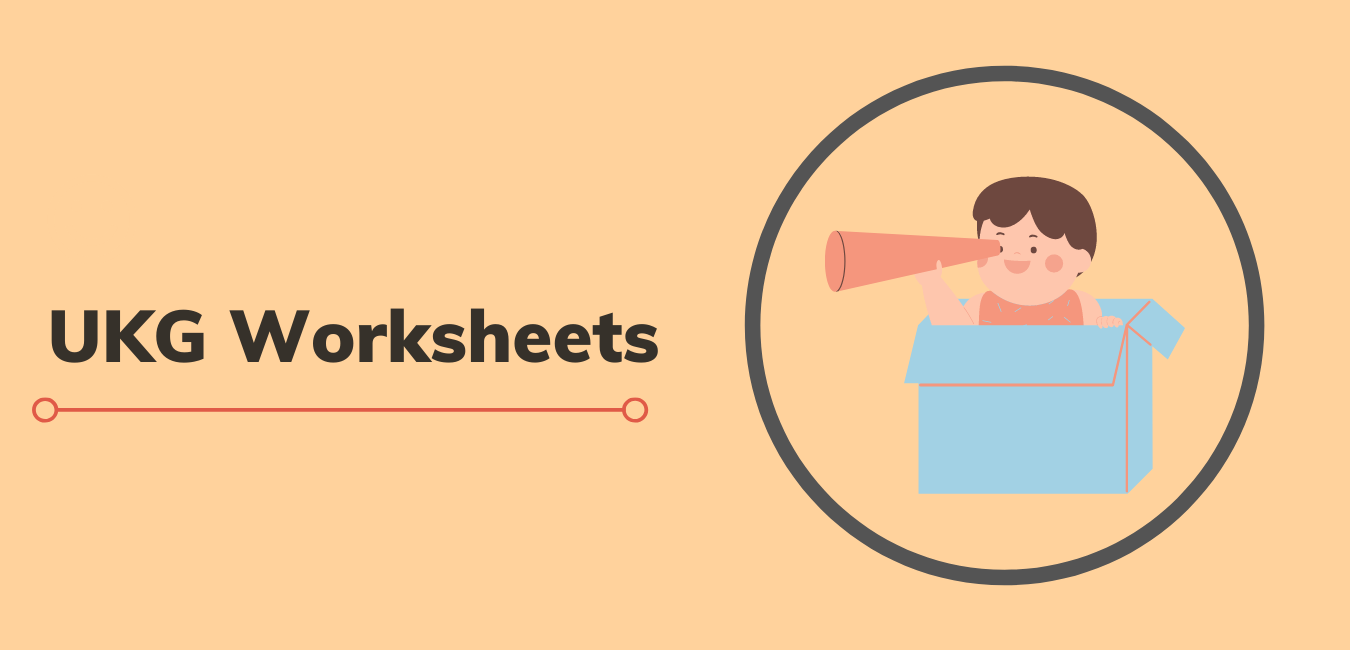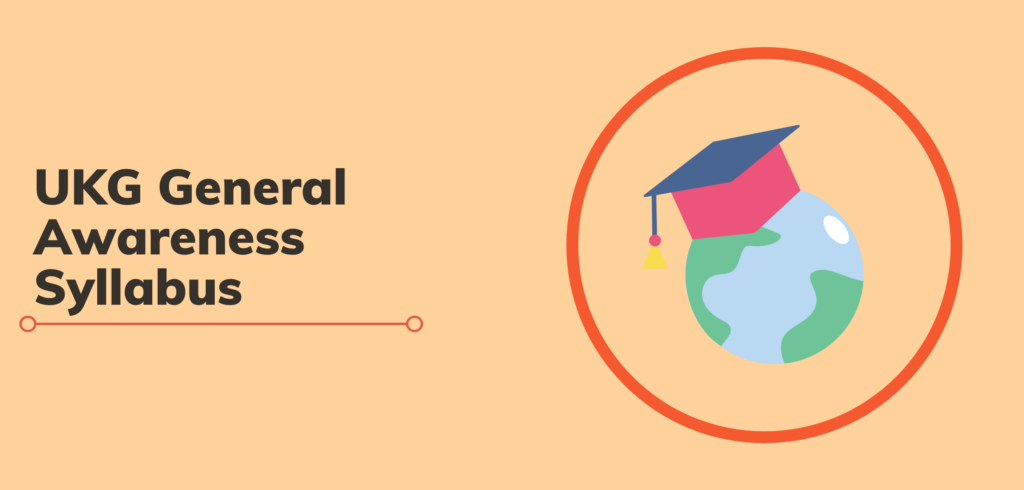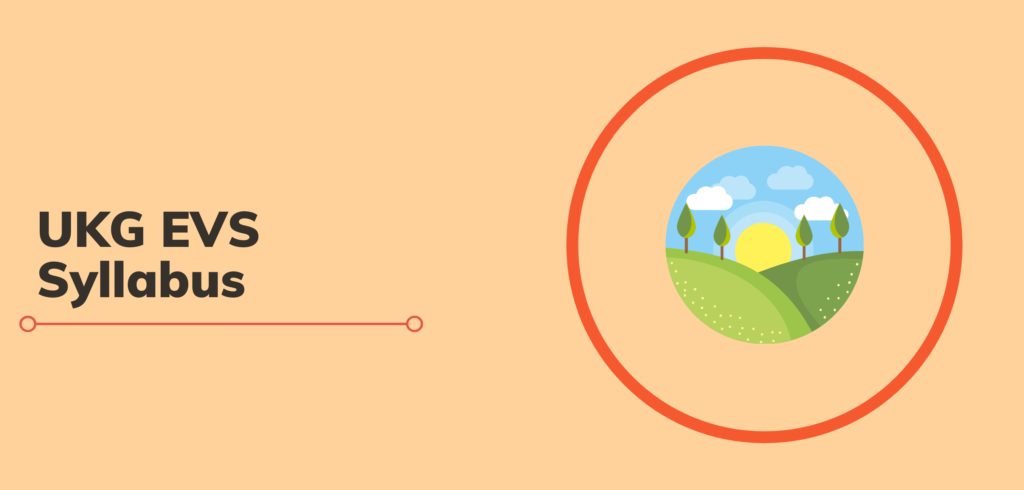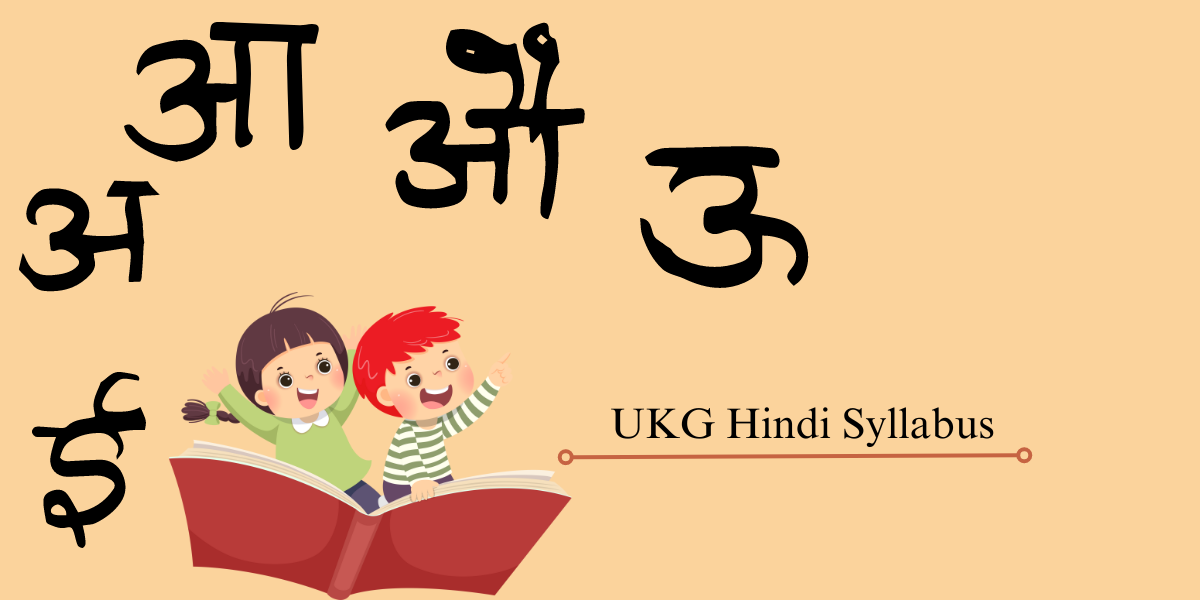
Here we have curated the UKG syllabus based on the latest guidelines by CBSE, ICSE and Cambridge boards. You can download the subject wise upper kindergarten curriculum for free in pdf and use it to create a sweet & simple study plan for your kid.
UKG Class Syllabus for CBSE, ICSE and Cambridge Boards
UKG is an important phase in a child’s education as it introduces them to basic concepts that lay the foundation for future learning. We have developed the latest UKG syllabus based on guidelines from major educational boards in India, including the CBSE, ICSE, and Cambridge boards. The syllabus is designed to support children’s overall development and prepare them for future challenges.
Subject-wise syllabus for UKG
- UKG Syllabus for English
- UKG Syllabus for Maths
- UKG Syllabus for General Awareness
- UKG Syllabus for EVS
- UKG Syllabus for Hindi
UKG English Syllabus

The UKG English syllabus focuses on developing foundational language skills through letter identification, vowel and consonant recognition, rhyming words, and understanding positions and objects related to letters. It emphasizes oral and written communication, encourages creativity through various activities such as storytelling and picture composition, and includes a revision of basic English language concepts.
Letters (Aa– Zz)
- Identification
- Sound of letters
- Objects related to letters
- Vowels and Consonants
- Vowel words
- Article a/an
- This-That & These – those
- One- Many
- Positions
- Rhyming words
Activities
- Reading words and sentences.
- Use of Genie board, flash cards, oral interaction, written work, worksheets, storytelling and enactment.
- Picture composition, making sentences with certain words or structure and use of ‘in’, ‘on’ and ‘under’ in sentences.
UKG Maths Syllabus

The UKG Maths syllabus covers pre-math concepts like opposites, spatial relationships, size, quantity, and comparisons. Students learn numbers up to 100, time, addition and subtraction with pictures, money, and skip counting. They also study shapes such as triangles, rectangles, squares, circles, semi-circles, ovals, and diamonds, and explore colours like black, white, pink, red, yellow, blue, orange, green, and purple.
| Pre-Maths Concepts | Same-Different Big-Small Tall-Short More-Less Heavy-Light Full-Empty In-Out Thick-Thin Right- Left Front – Back Top – Bottom |
| Shapes | Circle Square Rectangle Triangle Semi-Circle Oval Diamond |
| Numbers (1-100) | Count and write, colour and match Before, After, Between number (1-100) Forward and Backward counting (1-50) Number names (1-50) Skip counting 2 & 5 Picture Addition Picture Subtraction Time Money Simple addition & subtraction using objects Addition and subtraction without objects or pictures |
| Colours | Red, Yellow, Blue (Shades – Light & Dark) Orange, Green, Purple (Shades – Light & Dark) Black, White, Pink (Shades – Light & Dark) |
UKG General Awareness Syllabus

The UKG General Awareness (GK) syllabus covers topics like self-awareness (home, family, school, body parts), seasons (summer, rainy, winter), transportation (water, land, air), and animals (water, wild, farm, domestic, pets, young ones, sounds). It aims to enhance children’s knowledge of themselves and their environment.
About me
- Parts of body
- Sense organs
- My Home
- My Family
- My School
Animals
- Wild
- Domestic
- Pet
- Farm
- Water
- Animals and their sounds
- Animals and their young ones
Transport
- Land
- Water
- Air
Seasons
- Summer
- Rainy
- Winter
UKG EVS Syllabus

The UKG EVS syllabus focuses on introducing students to their environment and the people around them. The syllabus covers various topics, including different types of transportation with practical demonstrations, visits to places like police stations or post offices, an introduction to traffic rules and safety, projects on collecting living and non-living things, and an understanding of air, water, and sound pollution. The aim is to create awareness and knowledge about the environment and its impact on our lives.
- Talking different types of transport as well as proving a demonstration in vehicles
- A visit to a police station or post office
- Introduction to traffic rules and safety
- Project on collecting a few living and non-living things
- Introduction to air, water and sound pollution
UKG Hindi Syllabus

The UKG Hindi syllabus introduces students to Hindi alphabets, including vowels and consonants. They learn to identify and use these alphabets, as well as the application of matras (vowel signs) to consonants. The focus is on developing foundational reading and writing skills in Hindi.
- Alphabets – अक्षर
- Vowels (a-ah) – स्वर (अ-अः)
- Consonants (k-gya) – व्यंज़न (क-ज्ञ)
- Knowledge of matras (a-ah) – मात्राओ का ज्ञान (अ-अः)
- Learn to use consonants (k-gya) – व्यंज़न (क-ज्ञ) मात्राऍ लगाना ।
Download UKG Syllabus in Pdf
Download and take a printout of this syllabus and club it with our worksheet collection to give perfect touch to your kids early education.
UKG Syllabus FAQ
The correct age for UKG is between 4-5 years. Though there will be certain relaxations in upper age limit in most of the schools
In India, the educational authorities have the authority to release the UKG syllabus for the 2025 academic year. The four major boards in India that release these syllabuses are the CBSE, ICSE, Cambridge board, and state boards. These boards are responsible for determining the curriculum and learning goals for children in the UKG grade in India, and the syllabus they release serves as a guideline for teaching and learning in UKG classrooms across the country.
In UKG, children should be working towards the following learning goals:
1. Developing reading and language skills, including the ability to read words and sentences aloud
2. Engaging in social conversations and interactions with others
3. Using a range of tools and activities, such as flashcards, oral interaction, written work, worksheets, storytelling, and enactment, to explore their creativity
4. Reviewing and reinforcing their English language skills.
Related Resources
